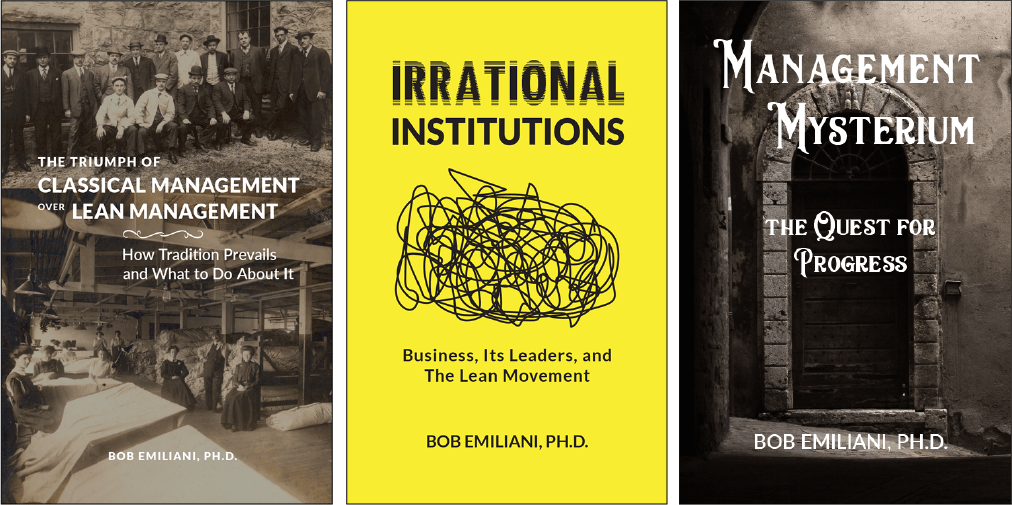
Our most ardent promoters of Lean have great expectations that business leaders will magically see the need to care for people — employees, customers, suppliers, and communities. That they will develop employees through the coaching and improvement katas rather than treating them as disposable assets, that they will put customers first rather than viewing them merely as sources of cash, that they will treat suppliers as valued business partners rather than instruments to bargain with for low prices, that they become integral parts of communities rather than quickly abandoning communities when it is financially expedient to do so.
At the same time, they advise their followers to:
- Be curious and learn what is really going on
- Explore what you do not know
- Become people-centric
- Develop a new thought process
This comes across to me as jarring incongruities. As Lean perpetually struggles to gain traction among business leaders, it would be wise to look in the mirror and follow one’s own advice. If Lean promoters did that, they would learn that most business leaders remain solidly committed (for the foreseeable future) to a mode of corporate governance that has little interest in catering to the welfare of employees, customers, suppliers, and communities. Rather than being deliberate interests, as Lean promoters pray, these are incidental interests — more by accident than by design. It is wonderful when stakeholders experience favorable outcomes, but it does not typically reflect any deeply felt obligations of business leaders.
Caring for people is not embedded in any of the economic, social, political, historical, philosophical, business, legal, and spiritual preconceptions associated with business under the aegis of classical management. Were Lean promoters to follow their own advice, they would be curious to learn what is really going on — why business leaders remain firmly committed to classical management. They would explore this realm to understand what they do not know. They would realize why people have long been seen as not being central to business enterprise, yet machines are. And they would develop new thought processes to identify countermeasures that could correct outdated understanding and practice of business, leadership, and management.
Yet it seems this path of awakening is unlikely to be taken. Our most ardent Lean promoters continue to ply their trade in apparent total darkness, failing to understand the “institution of leadership” and how it easily and efficiently fends off attempts at progress in the practice of leadership and management of organizations. The promotion of Lean has become dogmatic in belief that its own starry enlightenment exempts it from being curious to learn what is really going on, to explore what it does not know and that which it assumes to know, become people-centric by engaging others outside their clique, and develop a new thought process that will help them contend with humanity’s challenges. Instead, Lean promoters have become much like the business leaders they repudiate for their determined unwillingness to see the light.
While the intentions of our most ardent Lean promoters are likely to be fundamentally wholesome, they are incomplete without an accurate accounting of the current state which is necessary before the future state can be realized. You too can have great expectations that business leaders will magically see the need to care for people, or you can:
- Be curious and learn what is really going on
- Explore what you do not know
- Become people-centric
- Develop a new thought process


